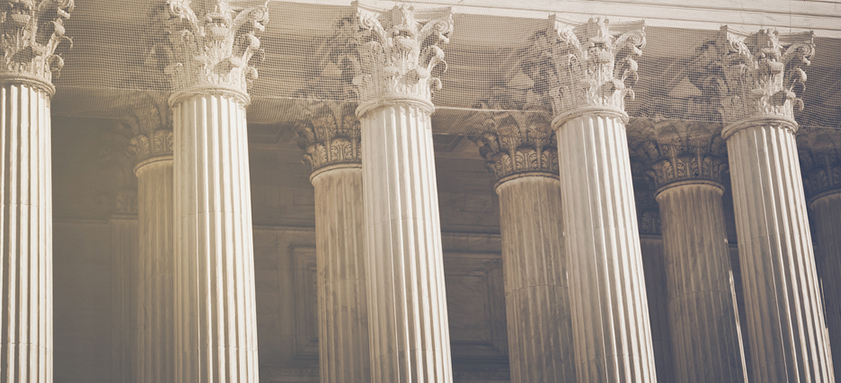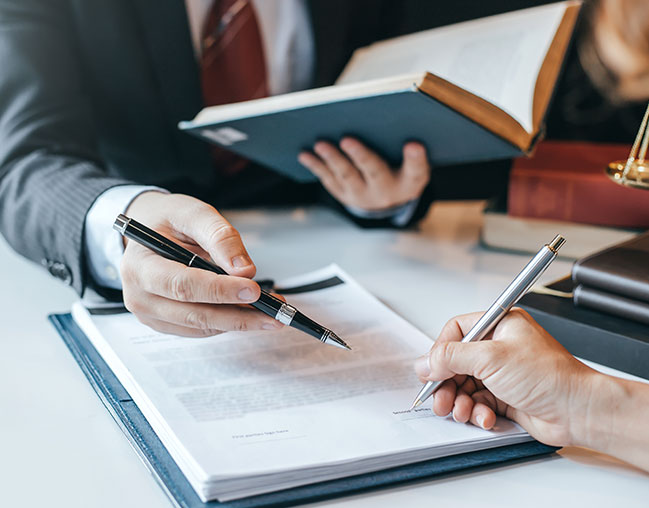Charter Rights Defence Lawyer in Toronto
The passage into law of the Canadian Charter of Rights and Freedoms in 1982 brought about the most profound change to the criminal justice system in Canada since the abolition of the death penalty.
For the first time in its history, Canada codified a legally binding set of human rights to complement the principles of peace, order and good government enshrined in our Constitution. The values recognized in the Charter are deemed to be so important that they take precedence over any form of state action or legislation, with only very limited exceptions.
One of the most important sections of Canada’s Constitution recognizes the supremacy of this legal document, which includes the Charter:

One of the most important sections of Canada’s Constitution recognizes the supremacy of this legal document, which includes the Charter:
1.The Constitution of Canada is the supreme law of Canada, and any law that is inconsistent with the provisions of the Constitution is, to the extent of the inconsistency, of no force or effect
- 2. The Constitution of Canada includes
- (a) the Canada Act 1982, including this Act;
- (b) the Acts and orders referred to in the schedule; and
- (c) any amendment to any Act or order referred to in paragraph (a) or (b).
The criminal justice system is where the Charter has had the most impact. The Charter acts as a filter through which the actions of government are screened. If the government violates the rights of one of its citizens, there can be severe consequences to the prosecution’s case, including the exclusion of critical evidence, a judicial stay of proceedings (i.e. the case itself is thrown out), or even an award of costs against the government. No longer will the courts sit back and assume that the police or state agents always act in the best interest of its citizens; with the advent of the Charter, defendants in criminal cases now have a potent and highly effective shield against government abuse.
The Charter and Criminal Justice
While the Charter defines values throughout our society, there are certain rights, specified in sections 7-14, that pertain primarily to the criminal justice system.
Legal rights – sections 7 to 14
Section 7: Right to Life, Liberty and Security of the Person
Section 7 is one of the most fundamental of those enshrined in the Charter. It is also one of the most broadly-worded and vague sections. It reads as follows:
7. Everyone has the right to life, liberty and security of the person and the right not to be deprived thereof except in accordance with the principles of fundamental justice.
Section 7 is what protects us against many instances of abuse of process by the government, such as corruption or criminal conduct by state agents. It guarantees a defendant in a criminal case the right to know the case s/he has to meet by requiring the government to provide disclosure of the evidence; and it guarantees that you will be given a chance to defend yourself, and have your case decided by an independent and impartial tribunal.
You cannot be convicted of a criminal offence unless you intended to commit the illegal act. And while you are being subjected to investigation and prosecution, you have the right to remain silent, protected by this section.
Section 8: Search and Seizure
Section 8 protects an individual’s right to privacy. The section reads:
8. Everyone has the right to be secure against unreasonable search or seizure.
This section requires that the police have reasonable and probable grounds before searching you or your property, or intercepting your private conversations by way of a wiretap or listening device. Depending on the situation, and your expectation of privacy, the law sets out the threshold that the government must meet before being allowed to intrude. For example, there is a lower expectation of privacy in the international departure terminal of an airport than there is in your home. It is less intrusive for the police to lift your fingerprints than to take a sample of your DNA. In the most serious scenarios, the police might have to obtain the approval of the courts before conducting a search or seizure, as they do with search warrants or wiretap authorizations.
This section is one of the most heavily contested issues in drug cases.
Section 9: Detention
Not only are you protected from search and seizure by the police, you are also protected when you are merely detained for investigation. Section 9 reads as follows:
9. Everyone has the right not to be arbitrarily detained or imprisoned.
This section guarantees that if the police stop to question you, they cannot do so randomly, or on a mere hunch. Your car cannot be pulled over unless it is for the purpose of enforcing the Highway Traffic Act or drinking and driving laws. Working together, sections 8 and 9 require that the police do their homework before engaging in conduct that limits the freedom of its citizens to go about their business undisturbed.
Section 10: When in Police Custody
Sections 8 and 9 limit the ability of the police to interfere with your liberty; but when they do, section 10 requires them to afford you certain procedural protections:
- 10. Everyone has the right on arrest or detention
- (a) to be informed promptly of the reasons therefor;
- (b) to retain and instruct counsel without delay and to be informed of that right;
As the section states, you are entitled to know why you have been arrested or detained, and you have the right to speak to a criminal defence lawyer. The police are required to inform you of these rights, because having a right is useless unless you know about it.
This section is one of the most heavily litigated areas in drinking and driving cases, and where the Crown is relying on confessions or incriminating statements.
Section 11: Legal Rights
Section 11 sets out a number of fundamental rights and procedural protections that apply specifically to defendants in criminal cases:
- 11. Any person charged with an offence has the right
- (a) to be informed without unreasonable delay of the specific offence;
- (b) to be tried within a reasonable time;
- (c) not to be compelled to be a witness in proceedings against that person in respect of the offence;
- (d) to be presumed innocent until proven guilty according to law in a fair and public hearing by an independent and impartial tribunal;
- (e) not to be denied reasonable bail without just cause;
- (f) except in the case of an offence under military law tried before a military tribunal, to the benefit of trial by jury where the maximum punishment for the offence is imprisonment for five years or a more severe punishment;
- (g) not to be found guilty on account of any act or omission unless, at the time of the act or omission, it constituted an offence under Canadian or international law or was criminal according to the general principles of law recognized by the community of nations;
- (h) if finally acquitted of the offence, not to be tried for it again and, if finally found guilty and punished for the offence, not to be tried or punished for it again; and
- (i) if found guilty of the offence and if the punishment for the offence has been varied between the time of commission and the time of sentencing, to the benefit of the lesser punishment.
Most of these provisions speak for themselves, but some bear special mention.
Nothing is more fundamental to our system of justice and the democratic values of a civilized society than the presumption of innocence. In practical terms, this right means that it is the Crown that must prove the case against you; you are not required to prove your innocence.
The right to a trial within a reasonable time recognizes that having criminal charges and bail conditions hanging over your head is an emotionally and often financially stressful experience.
Sometimes your career, access to your children, or your ability to travel or communicate is compromised for months or even years. Courts and prosecutors are overburdened and under-resourced, leading to lengthy delays before you are able to exercise your right to a trial. In such cases, the law has set certain thresholds beyond which the government risks losing their opportunity to pursue a criminal prosecution against you. This has been a particularly volatile battleground in recent years, as governments try to balance ever more complex cases and busier urban courts, with the desire to balance budgets. The court is the final arbiter of a citizen’s rights in these situations, and it is a role that they guard carefully.
Section 12: Punishment
Section 12 constitutes a simple but crucial limitation on a government’s power:
12. Everyone has the right not to be subjected to any cruel and unusual treatment or punishment.
It is section 12 that makes capital punishment and torture illegal, and protects us against draconian measures such as the American “three strikes” laws. Once a citizen has received the benefit of all of the law’s protections during the criminal process, yet is found guilty, section 12 ensures that the offender will be subjected only to the appropriate and humane consequences of his or her actions at the sentencing.
Section 13: Self-incrimination
This section operates in combination with section 7 to protect a defendant from being forced to give evidence against himself or herself:
13. A witness who testifies in any proceedings has the right not to have any incriminating evidence so given used to incriminate that witness in any other proceedings, except in a prosecution for perjury or for the giving of contradictory evidence.
Section 14: Right to an Interpreter
This section recognizes the Canadian reality that many of us have come to this country from another part of the world. The Charter applies to all Canadians, and ensures that we all benefit from the same high standards of justice;
14. A party or witness in any proceedings who does not understand or speak the language in which the proceedings are conducted or who is deaf has the right to the assistance of an interpreter.
Preparing Your Charter Defence
At The Defence Group, we subject each and every case to a thorough analysis to ensure that at every stage of the proceedings, your rights under the Charter have been respected by the government. If your rights have been violated, we will seek the strongest remedy. When evidence is excluded or thrown out because of a Charter breach, some critics complain that the case was won on a “technicality”. We do not agree. There is nothing “technical” or trivial about being subjected to the full force and power of the government’s law enforcement apparatus, being arrested and charged and forced to defend oneself. The police and the state have to follow the rules too, and if they don’t, they should be subjected to consequences for their behaviour, just like any citizen.
If your rights have been violated, we will prepare a detailed and comprehensive strategy to fight this injustice. As part of this process, we will bring a specialized Application to exclude evidence or seek to have the case thrown out. This Application is just one of the tools that we will use, along with all of the other tactics and strategies that we will deploy to win your case.


